‘This is perfect’: WFU launches engineering program enriched by liberal arts
Highlights
- Combining engineering with liberal arts is not the norm for most undergraduate engineering programs, but it will be for the 50 or so students in Wake Forest’s first cohort starting classes at Wake Downtown this month.
- Wake Forest’s engineering program is distinctive for its innovative and customizable curriculum, interdisciplinary and experiential learning, and the opportunity to design a next-generation lab.
- In addition to approximately 40% female student enrollment, the department also features a precedent-setting faculty that is 75% female.
Like any aspiring engineer, first-year student Meredith Vaughn gets excited about building something from the ground up, so Wake Forest University’s new undergraduate engineering program immediately appealed to her.
In high school, Vaughn focused on vocal performance at Weaver Academy for the Visual and Performing Arts, an arts-based magnet in nearby Greensboro, N.C. But she chose to attend Wake Forest because it allows her to pursue her passions across the liberal arts – from STEM to singing.
Vaughn is one of approximately 50 students in Wake Forest’s first cohort of undergraduate engineering students who will begin taking classes at Wake Downtown later this month.
“I want to study engineering and I also want to be in an a cappella group. When I found out that Wake was starting these new programs in engineering and biomedical sciences, I thought, ‘This is perfect.’” Meredith Vaughn (’21)
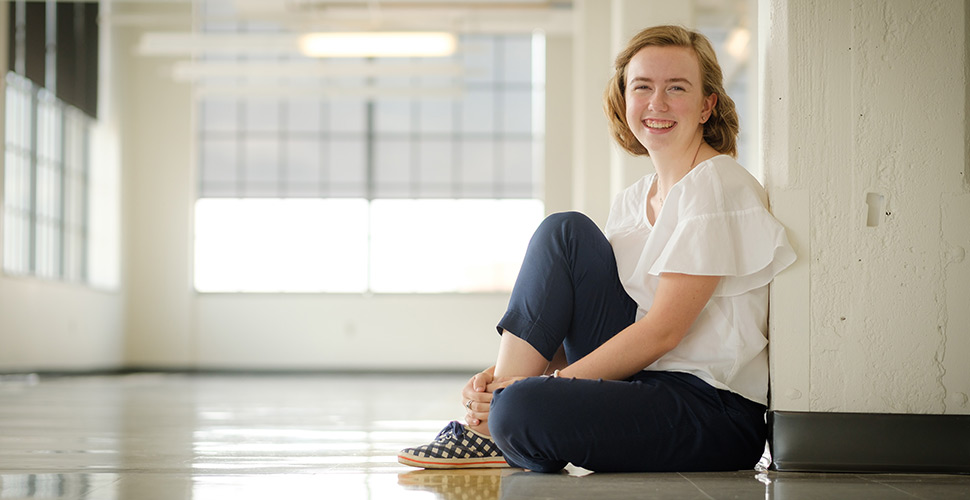
Combining engineering with liberal arts is not the norm for undergraduate engineering education, but it is the future, said Olga Pierrakos, founding chair of the Department of Engineering.
“Students have multiple interests and multiple identities. Yet, most traditional programs have asked students to take on the engineer’s identity only and not look holistically at one’s self.” Olga Pierrakos, founding chair of the Department of Engineering
“We lose students because we don’t let them express who they are beyond this professional identity,” said Pierrakos, who managed a $100 million portfolio to strengthen STEM education while at the National Science Foundation (NSF) and helped found the engineering program at James Madison University prior to coming to Wake Forest.
Noah Handwerk of Clemmons, N.C., expects the liberal arts foundation of his engineering degree will give him a better understanding of what he is designing. A fan of physics and robotics, he chose Wake Forest for the faculty’s varied backgrounds.
“I’m going to be exposed to a wide variety of engineering fields and studies. That seemed like a great option to me, because I don’t know what I want to specialize in. And I feel like I will have a larger role in the department as one of the first students to go through.” Noah Handwerk ('21)
Wake Downtown
Wake Forest’s undergraduate engineering program offers several distinctives:
- Innovative and customizable curriculum – The B.S. in Engineering requires 120 credit hours: 45 in engineering, 30 in mathematics and science, and the remaining comprising a combination of general education requirements and free electives. This curriculum will allow students to create customized pathways to align with personal and professional interests. Some will align with existing institutional strengths (such as biomedical engineering, sustainability, entrepreneurship and innovation and business) while others will evolve with the student body. Faculty can help students develop custom plans while assuring the curriculum satisfies ABET accreditation requirements and allows flexibility to incorporate students’ passions and interests.
- Unprecedented female faculty mentors – Wake Forest’s undergraduate engineering program has a precedent-setting faculty that is 75 percent female – compared to 15.7 percent of engineering faculty across American universities. According to the latest available statistics from the American Society for Engineering Education (2015), Seattle Pacific University ranked first, with 66.7 percent. This is a significant development in promoting gender equity in the industry and particularly meaningful since approximately 40 percent of Wake Forest’s first class are female. Recent research by Wake Forest economist Amanda Griffith has shown that female undergraduates are more likely to stick with engineering and other STEM disciplines if they have same-gender role models in the classroom.
- Interdisciplinary and experiential learning – Crossing departmental boundaries will be a key part of Wake Forest’s engineering experience. With faculty offices, classrooms and labs in the newly established Wake Downtown campus, adjacent to the School of Medicine and surrounded by downtown redevelopment, opportunities for collaborative projects are built in. Additionally, the program’s emphasis on hands-on learning and using engineering to solve real-world problems is attractive to today’s students. Such an approach is aimed at better preparing for engineering careers and leadership roles after graduation, as well as creating an engineering industry that better reflects society in terms of demographics.
- Designing a next-generation lab in Wake Downtown – The new program’s home in Wake Downtown also offers this inaugural class of students a distinctive and rare first-year project: They will help design the lab space – several sprawling rooms in Building 60 with wonderful, sweeping views of Winston-Salem.
What they’re saying
“Students will participate in design challenges to determine the function of the spaces, to design and prototype the furnishings,” Pierrakos said.
“Wake Downtown is a wonderful opportunity to engage with the Wake Forest community, and more strongly to engage with the Winston-Salem community. It’s an open door to community involvement and a very exciting way to operate an undergraduate engineering program.” Olga Pierrakos, founding chair of the Department of Engineering
Upon graduation from Wake Forest, prospective liberal arts engineers like Vaughn will incorporate fundamental knowledge and skills from a variety of disciplines, including the arts, humanities, and social sciences, into engineering practice. Faculty say this breadth and depth of knowledge lead to innovation because the approach to problem finding and problem solving is to integrate diverse knowledge, perspectives and skills – all of which yield a more positive impact on humanity, in keeping with the University’s Pro Humanitate motto.
For now, Vaughn is delighted by the opportunities before her cohort and looks forward to charting her own course. Her current plans include studying biomedical engineering and exploring internships at Wake Forest Baptist Medical Center.
“I really like helping people and solving problems.” Meredith Vaughn ('21)
Meet the founding faculty
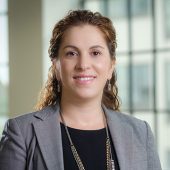 Olga Pierrakos, founding chair and professor. She most recently served as program director for the Division of Undergraduate Education, Education & Human Resources Directorate, National Science Foundation (NSF). She was one of the founding faculty of the engineering department at James Madison University and has expertise in biomedical and mechanical engineering.
Olga Pierrakos, founding chair and professor. She most recently served as program director for the Division of Undergraduate Education, Education & Human Resources Directorate, National Science Foundation (NSF). She was one of the founding faculty of the engineering department at James Madison University and has expertise in biomedical and mechanical engineering.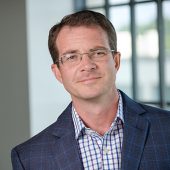 Michael Gross, associate professor. With expertise in chemical engineering, earlier this year he was awarded the prestigious NSF CAREER Award. He also studies student motivation, especially as it relates to the success of STEM students.
Michael Gross, associate professor. With expertise in chemical engineering, earlier this year he was awarded the prestigious NSF CAREER Award. He also studies student motivation, especially as it relates to the success of STEM students.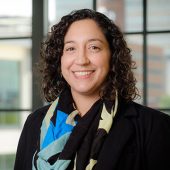 Elise Barrella, assistant professor. She comes from James Madison University, where she was an assistant professor in the Department of Engineering, and worked on civil engineering projects, urban infrastructure systems and sustainable design education.
Elise Barrella, assistant professor. She comes from James Madison University, where she was an assistant professor in the Department of Engineering, and worked on civil engineering projects, urban infrastructure systems and sustainable design education.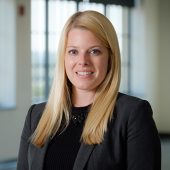 Elizabeth Boatman, assistant professor. As a materials engineering expert, she taught at the University of Wisconsin-Stout and plans to explore materials biomimicry, or how nature engineers things, at Wake Forest.
Elizabeth Boatman, assistant professor. As a materials engineering expert, she taught at the University of Wisconsin-Stout and plans to explore materials biomimicry, or how nature engineers things, at Wake Forest.
The group will team-teach all Introduction to Engineering courses offered this fall, giving students a greater opportunity to connect. “They’re going to have all four of us as their advocates and their mentors by the end of year one,” Boatman said.
Categories: Experiential Learning, Research & Discovery

